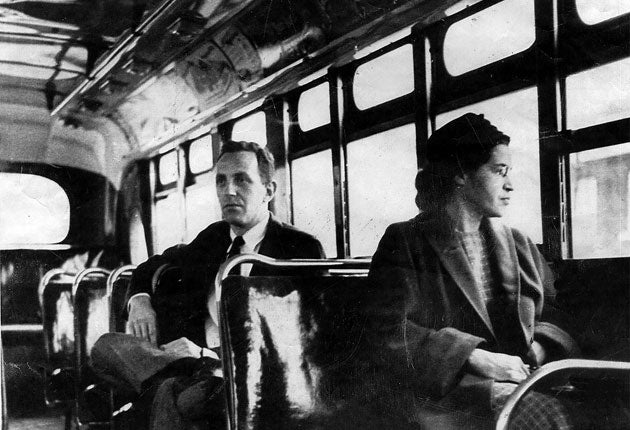Has 'Black History Month' failed us?
Should we really relegate the entirety of black history just to one month, asks Magdalene Abraha

It’s October again. Black History Month. When educational institutions embellish corridors and rooms with posters of Nelson Mandela and Martin Luther King.
When the actions of the civil rights activists are admired and revered. Names such as Chuka Umunna and Doreen Laurence are frequently mentioned and debates surrounding the courage of Rosa Parks and Mary Seacole take place. To put it simply, for one month we learn and appreciate black culture and history.
“I’m delighted to support this year’s Black History Month – now in its 26th year of celebrating the achievements, culture and history of African-Caribbean people in the UK,” - David Cameron
Black history gives the country a chance to praise and commend the achievements of the black community. The focus on this celebratory cause is often supported by high profile figures and allows society to shed light on elements of history that are often disregarded.
Cultural festivals in primary schools spring to mind; schools encouraging African and Caribbean parents to bring in different foods for the children to try, in the hope of developing their appreciation for other cultures. By the time pupils are in secondary school, they are probably sat watching "Roots" and may have a light-hearted discussion about it afterwards.
"I always wondered why the history of black people had to be confined to a single month instead of being inside the history books along with the rest," - Stacy Washington, Project 21 National Advisory Council of the National Centre for Public Policy Research
Whilst these activities are sometimes informative and well meant, it does not seem right that only 31 days are dedicated to a whole history of a people. Black history month appears to be, if anything, a time of transitory reflection saturated in political correctness. A month where the focus on black icons seems somewhat superficial, with the ideals of black history month being presented to us in the form of politically correct speeches, newspaper editorials and cultural festivals.
Dare I say it, Halloween seems more effectively celebrated in October. This is rather shocking when exploring the essence of black history – ultimately, the genesis of all life is African. Therefore, the assertion that "black history is world history" holds true in the most literal sense.
"Is it helpful for children to learn about history in a segregated way?" BBC Radio 4 , 'Black History month & The Usual Suspects'
All the way from Chuka Umanna's entry into parliament to Doreen Laurence's inspirational battle for justice, black history month certainly reveres black achievers, but it encourages a segregated history. Having a month for black history allows its focus to be pushed to the back shelf for the rest of the year. It is wrong that a student can spend years in the education system and not learn about African or Caribbean history, in the same way that they would about Roman, Greek or British history.
What would be far more socially beneficial would be a greater focus on black history into the wider stream – perhaps more black history in the national curriculum. It is worth remembering that the national curriculum states "it should develop [pupils] knowledge, understanding and appreciation of their own and different beliefs and cultures, and how these influence individuals and societies".
Black History Month has failed us. Celebrating the history of black people for a short period of time allows it to be forgotten quickly. What is needed is educational integration; black history deserves to be put side by side with the history of other groups in our history textbooks. "Black History Month" should not be celebrated, but rather black history itself should.
Join our commenting forum
Join thought-provoking conversations, follow other Independent readers and see their replies
Comments